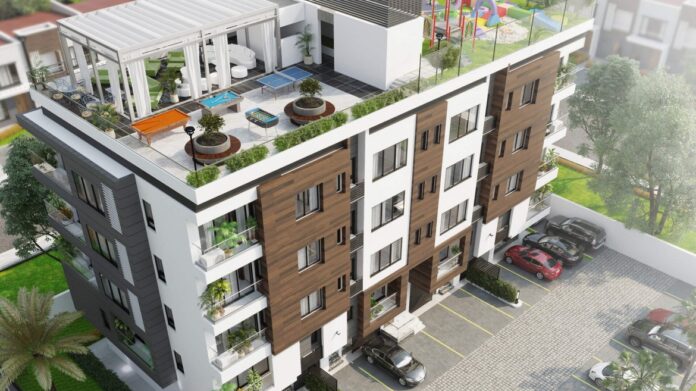Lagos commercial real estate shows a return to activity despite tragedy
By Jeph Ajobaju, Chief Copy Editor
Bullish developers ensured Lagos commercial real estate grew 19 per cent in 2021
compared with 2020, according to Estate Intel data which shows a return to construction activity despite the collapse of a 21-storey building in November.
Estate Intel CEO Dolapo Omidire said 2021 marked an important shift in the development cycle across Lagos commercial real estate sector “buoyed in part by increasing investor interest in key sectors such as offices, residential and healthcare.
“While absorption levels remain low in sectors such as prime offices which recorded vacancy levels ranging between 12 per cent and 36 per cent for Grade A and B offices, developers remain bullish on the market with over 600,000 square metres of space under development.”
Key sectors such as residential and healthcare remain undersupplied, an exciting opportunity for investors. With both sectors under 2.5 per cent of total stock point across the market, the outlook remains positive for the foreseeable future.
Outlook on the alternative real estate sectors – which include data centres, healthcare, and student accommodation – remains optimistic.
Estate Intel disclosed that over 10 per cent of projects of the development pipeline in the next five years falls within this category.
This share is expected to increase as these sectors gain traction because their strong income profile makes them attractive to investors.
__________________________________________________________________
Related articles:
Real estate launders 90% of Nigeria’s resources, EFCC says
Real estate chalks up N226b bad loans for banks
Ikoyi building collapse: Lagos releases names of survivors
__________________________________________________________________
Retail sector
The retail sector had in 2021 the largest share of the development pipeline relative to existing stock (60 per cent) but activity in the sector is likely to remain subdued.
Vacancy levels are expected to remain high, largely underpinned by poor access to foreign exchange for imports, depreciating naira, and increasingly unaffordable rents.
“The momentum that began building at the end of 2020 was sustained throughout the year with a slow and steady return to construction and real estate activity,” Omidire explained, reported by Nairametrics.
“However, currency challenges and longer-term trends such as the sustained oversupply in the retail and office sectors are likely to tip the scale upon completion of some of the projects that we await in 2022 ultimately impacting on occupancy levels and achievable rents.
“However, with the economy revving back up, it will no doubt impact on the occupier and buyers purchasing power, presenting pockets of opportunity for some of the sub sectors that meet the delicate balance between price and quality such as the mid-tier residential sector, neighborhood malls as well as flexible offices.”











